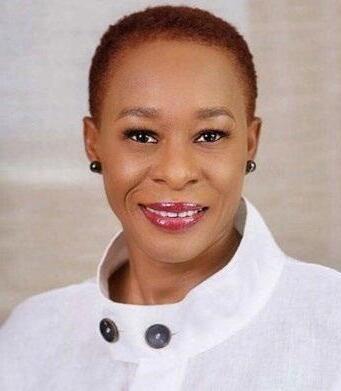
3 minute read
for Today’s Women Fertility
from DT NOW APRIL 30TH
by dtnow.ng
BY DR IKUNNA ONWUANIBE
under half of first-time mothers were above 30. Women focused on their careers are more likely to prioritise their careers over their fertility. Thanks to advances in science, especially in reproductive assisted techniques, have given women increased fertility options. The advances in reproductive medicine over the past decades have significantly increased the safety, success, accessibility, and affordability of assisted conception. This has given women the option to delay fertility if needed.
Advertisement
It is possible to remove and preserve eggs by freezing them until one is ready to have children so that they can be implanted through in vitro fertilisation (IVF). In 1999, Erramatti Mangamma, a 73 year-old Indian woman, gave birth to twins through IVF in India. However, scientific advances are limited to a degree by the quality of the egg. As previously mentioned, the quality of eggs decreases with age, and older eggs are more likely to be defective. Unfortunately, most women do not consider freezing their eggs until their late 30s, where it may be too late. All women, but particularly the group of career-focused women, need counselling on fertility and the limitations of IVF.
Are there any tests to determine my fertility?
Egg follicles within the ovaries make an Anti- Müllerian Hormone (AMH) hormone. The more eggs a woman has in her reserve, the higher the AMH level. Please note that AMH level helps to estimate the egg numbers but does not offer information on egg quality.
AMH testing can be of benefit to those who want reassurance that time is on the side so they can wait till later to start a family or to women over 35 who want information on their current ovarian reserve and egg numbers.
Bottom line
Aday after my daughter graduated from university six years ago, her grandma said it was time for her to find a husband. The pressure has not relented, and her Grandma recently ordered her to find herself a husband whilst visiting Enugu during the Easter holidays. Society continues to put unfair pressure on women to marry and produce children, with emphasis placed on the “biological clock”. Alongside societal pressure, African women also face several challenges concerning sexual and reproductive health; they have the highest fertility rates but they also have very high unmet need for contraception.
Fertility is a person's ability to conceive a child. The time it takes a woman to get pregnant varies. Most women will get pregnant within one year of trying. Several factors affect fertility, including a woman’s age, lifestyle, and health status. These lifestyle factors which include obesity, smoking and excessive alcohol consumption, are preventable causes of reduced fertility.
It is essential to note that the ability of a couple to conceive does not only depend on a woman producing good quality eggs, but also depends on the man having good quality sperm. Having healthy sperm improves the chances of falling pregnant.
Another factor affecting fertility is the timing of copulation, meaning that the egg and sperm meet at an adequate conception window. Some couples are advised to time having intercourse during ovulation, but this can be a source of anxiety. I have seen patients where this becomes a source of tension within the relationship, where the men are under pressure to perform during ovulation. This takes away the pleasure of sexual intimacy. The best option is to aim to have intercourse about three times a week, as this would give the best chance of getting pregnant.
How does fertility change with age?
Colloquially, the term “biological clock” is usually discussed in reference towards women, referring to the fact that it’s generally more challenging for women to get pregnant later in life. Societal expectations notwithstanding, reproductive biology decrees that chances of pregnancy decrease with age, as the number of eggs and the viability of those eggs diminish as a woman nears 40. Consequentially, this impinges unfair psychological pressures on women to have children by a certain age.
Girls are born with the maximum number of eggs they will ever have, as no new eggs will be made in their lifetime, and the number of eggs decreases with age. Most girls will have about 2 million eggs at birth, which falls to just under half a million eggs by the time they start to menstruate. Fertility usually dips significantly at about 37 for women, when the egg count is reduced to about 25,000. The number continues declining and most likely falls to about 1000 eggs during menopause. The quality of eggs also decreases alongside quantity with age.
It is important to note that the egg numbers and fertility rate varies from person to person. In real terms, some women may find that the lifespan of fertile years may be shorter or longer.
The average age at which women have their first children has increased worldwide. In high-income countries, the average age for giving birth is 30. In the United Kingdom, just
We know that fertility decreases with age. This poses several questions… What should women do today to increase their ability to get pregnant? Should women freeze their eggs? What is the optimal age for freezing eggs?
Women need to know and understand their options to be able to make informed choices.
Dr Ikunna Onwuanibe Family Physician at Dennis Ashley Medical Clinic Landmark Towers, Oniru, VI, Lagos @ikupopsicles








